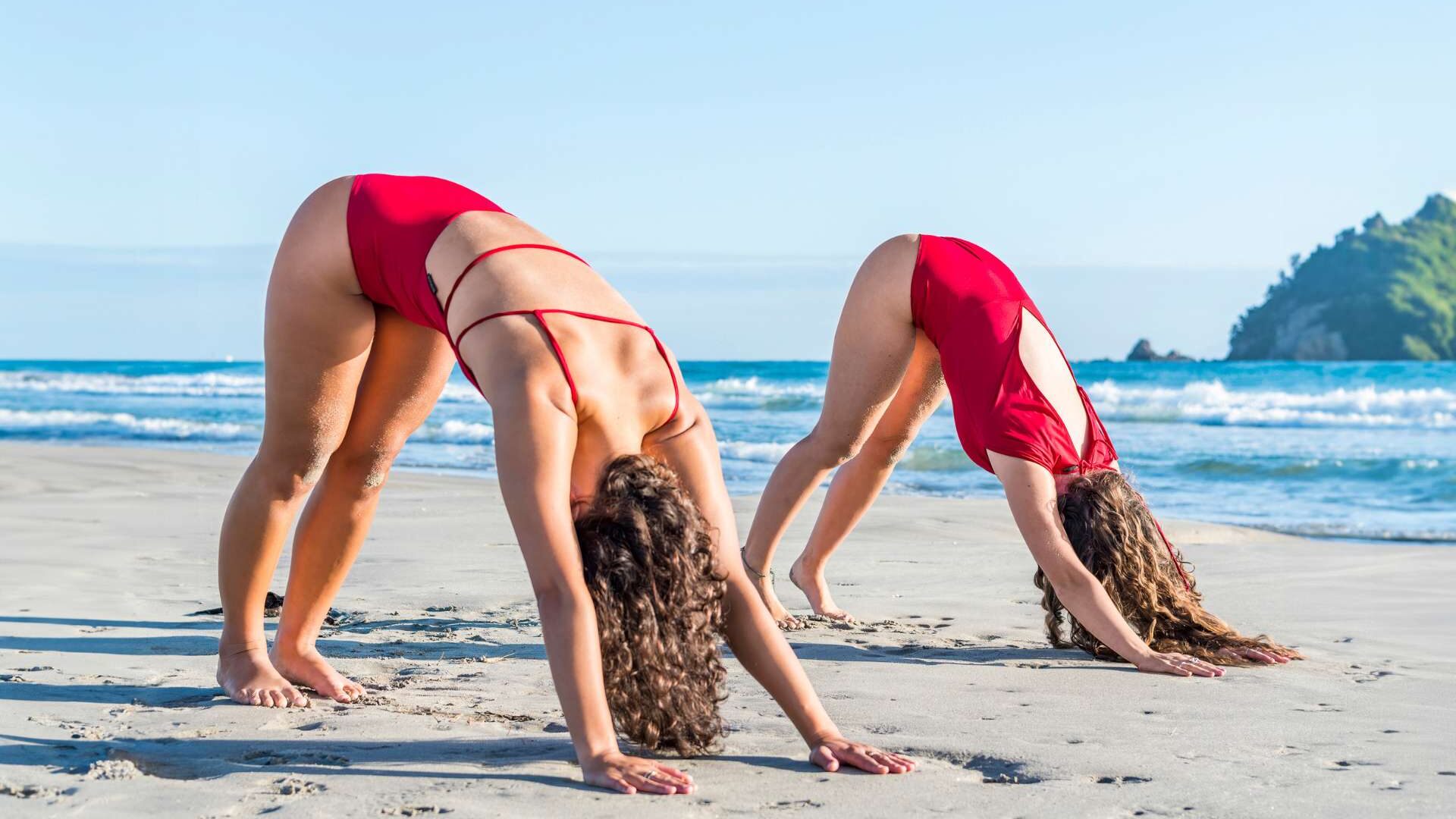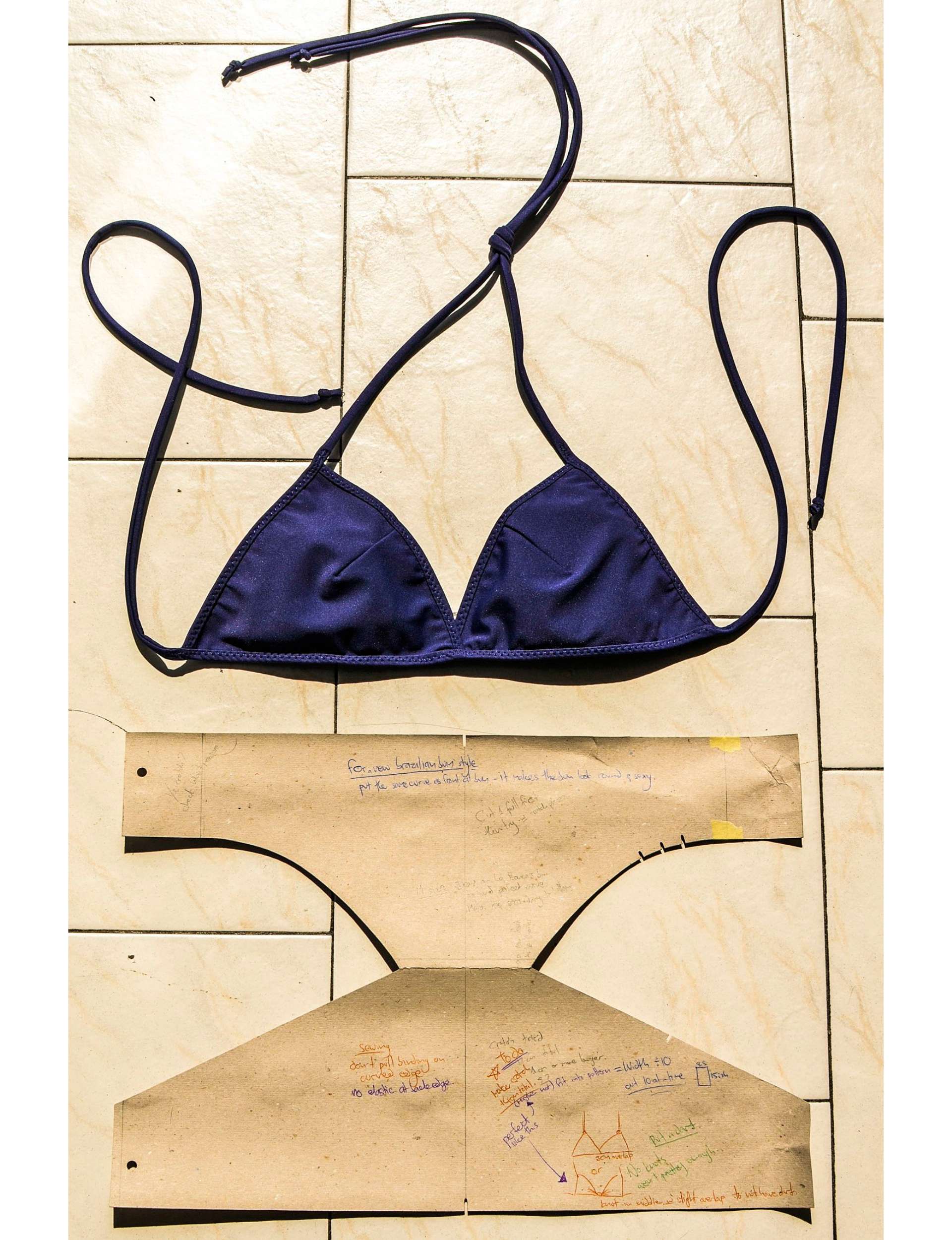Swimsuit designer Emma La Rocca has broken barriers in the New Zealand fashion industry, but it hasn’t been easy.
After creating the world’s first zero-waste swimwear label, Emroce – which some fashion companies “scoffed at” – she’s challenging society with swimsuits that defy the norm.
Emma is making G-string bikini bottoms up to size XXL, or larger if given custom measurements. She’s also creating nonbinary swimwear designed with trans women’s bodies in mind.
As far as Emma knows, she’s the only Kiwi designer who makes trans togs and is one of very few globally.
However, both controversial items have ignited “hatred and anger” on her social media posts. The negativity has saddened but not deterred her.
“It does suck when people say rude things against the trans swimwear,” tells Emma, 37. “I think they’re just scared of the unknown.”

A mum to Alma, 10, and Olivia, four, the keen surfer – who works from a studio in her Papamoa backyard in the Bay of Plenty – has fought to overcome gender biases so everyone can swim. She says, “Swimming is a joy, especially when you have the right tools. The more people who love the ocean, the better.”
The same goes for her advocating body confidence. In July, a Kiwi mum made headlines when she called for banning G-string bikinis at a popular public swimming pool in New Plymouth. She cited them as “pornographic”.
Emma, however, sees wearing skimpy togs – no matter your size – as exercising body autonomy. Her label sells two G-strings: the “G Banga Tanga” and the belted “G’s Up She’s In It”.
“More and more people are feeling OK about getting their bums out in public, cellulite and all. The growing knowledge of mindfulness and people stepping into their individual power is changing the game,” says Emma.

She has loads of customers who are grateful she offers G-strings in large sizes. They’re often unavailable elsewhere, as are nonbinary swimsuits.
Emma sells her togs worldwide. Her trans friend inspired her to design the swimsuits, who hadn’t been swimming since their transition six years ago. They didn’t want to wear “manly” Speedos, but couldn’t find another option.
“There’s no way a regular bikini would fit them,” explains Emma. “They want to wear feminine cuts and not lose their parts in the surf!”
She offers one-piece suits or bikini bottoms with a 6cm- wider crotch. Adding to her design difference, Emma refuses to grade swimsuit sizes using fashion’s standard measurements. Instead, she works on “real bodies”.

She doesn’t make a new collection every summer. Instead, she removes pieces that don’t sell and adds new ones that she thinks are missing. Her designs are classical and made from the Italian product Econyl. The material comes from waste products, including recycled fishing nets.
Emma’s customers inspire her as much as she meets their needs and the simplicity of her styles allows them to last longer than trends.
The mum of two – who spent four years living in Italy, where she met her husband – launched Emroce in 2018, while still overseas.
On her return to New Zealand, she began playing with zero-waste patterns. She adopted a method that fits swimsuits together like a jigsaw so that no fabric is wasted. This keeps prices down due to lower manufacturing costs and prevents a quarter of her material from ending up in landfills.

In 2020, international French sporting goods retailer Decathlon recruited her to work on some of their patterns. It resulted in them saving over one million square metres of fabric from heading to landfill in their first year.
Since then, Emma’s taught masterclasses nationwide. Her work is showcased in Amsterdam’s Fashion for Good Museum and she’s also inspired Kiwi sustainable fashion brand Nisa to produce its first zero-waste athleisure collection.
The designer would love more in the fast-paced fashion industry to implement her zero-waste method. She says, “I can’t do it on my own.”
Emma adds that we can’t wait for the Government to pass legislation to create healthy change, nor must we be afraid to rock the boat.
“If the option you’re looking for has yet to exist, you can create it as I did by starting Emroce,” she enthuses. “It’s hard work, especially to go against societal norms, but what fashion comopanies once scoffed at is now being sought after.
“I’m now a specialist in zero-waste design with 15 years of experience and there are very few of us in the world.”











